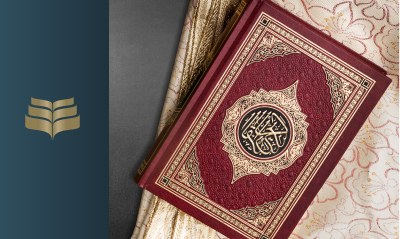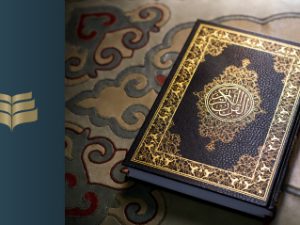Tafsir ul Qur'an - Surah al Fatiha
- Description
- Curriculum

Allaah sent the Qur’aan, in the language of the Arabs, as guidance to mankind. It is a light, a reminder and a conclusive evidence for those who wish to be guided. But how many of us understand the Arabic language? How many of us have contemplated over the Qur’aan and sought to understand and benefit from it?
Soorah al-Faatihah is the greatest chapter of the Qur’aan and there is nothing similar to it in the previous scriptures. This Soorah concisely summarises the message of the entire Qur’aan. It is the first thing a person reads when opening the Qur’aan. Indicating its importance, this Soorah opens the Salaah and it is from its pillars. It is something that is recited at least seventeen times a day and many scholars considered this to be an obligation. For these reasons and more, should it then not encourage you to learn about it? The Prophet (صلى الله عليه وسلم) said, “The best of you are those who learn the Qur’aan and teach it” [Bukhaaree]
This course is based on ‘The Spiritual Cure: An Explanation to Soorah al-Faatihah’. It is a summary of numerous classical commentaries prepared and translated by Aboo Rumaysah.
In this course you will learn the following:
– What are the various names given to this Soorah?
– When and where was it revealed?
– What are the virtues of Soorah al-Faatihah?
– What are the rulings of reciting al-Faatihah in prayer?
– What is the meaning of Isti’aadhah?
– What is its ruling for recitation?
– What is the wisdom of the Basmallaah?
– What are the legal rulings pertaining to the Basmallaah?
– What is the meaning of Allaah?
– What are the virtues of Hamd?
– What is the difference between ar-Rahmaan and ar-Raheem?
– Why is there a repetition of ar-Rahmaan and ar-Raheem?
– Why is the verse ‘Master of the Day of Judgement’ placed in this Surah?
– How does the verse ‘You alone do we worship and You alone do we ask for help’ exemplify the meaning of Tawheed?
– Why is this verse in the plural?
– Why do some of the verses of the Soorah change from third person to second person?
– Why supplicate for guidance to the Straight Path?
– Who does the last verse of this Soorah refer to?
-
1Tafsir ul Qur'an - Surah al Fatiha - Lesson 1
-
2Tafsir ul Qur'an - Surah al Fatiha - Lesson 2
-
3Tafsir ul Qur'an - Surah al Fatiha - Lesson 3
-
4Tafsir ul Qur'an - Surah al Fatiha - Lesson 4
-
5Tafsir ul Qur'an - Surah al Fatiha - Lesson 5
-
6Tafsir ul Qur'an - Surah al Fatiha - Lesson 6
-
7Tafsir ul Qur'an - Surah al Fatiha - Lesson 7
-
8Tafsir ul Qur'an - Surah al Fatiha - Lesson 8
-
9Tafsir ul Qur'an - Surah al Fatiha - Lesson 9
-
10Tafsir ul Qur'an - Surah al Fatiha - Lesson 10
-
11Tafsir ul Qur'an - Surah al Fatiha - Lesson 11
-
12Tafsir ul Qur'an - Surah al Fatiha - Lesson 12
-
13Tafsir ul Qur'an - Surah al Fatiha - Lesson 13
-
14Tafsir ul Qur'an - Surah al Fatiha - Lesson 14
-
15Tafsir ul Qur'an - Surah al Fatiha - Lesson 15
-
16Tafsir ul Qur'an - Surah al Fatiha - Lesson 16
-
17Tafsir ul Qur'an - Surah al Fatiha - Lesson 17
-
18Tafsir ul Qur'an - Surah al Fatiha - Lesson 18
-
19Tafsir ul Qur'an - Surah al Fatiha - Lesson 19







